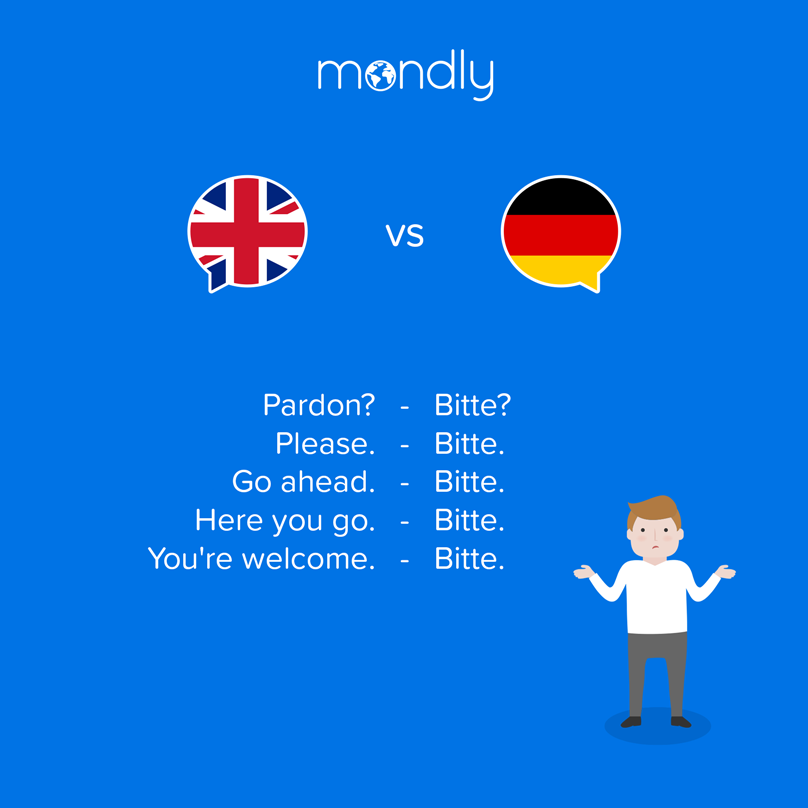
A Complete Collection of Top 16 German Gratefulness Statements

A Complete Collection of Top 16 German Gratefulness Statements
Today we are discussing German etiquette . More precisely,how do you say thank you in German depending on the social context, degree of familiarity, or the subject of discussion? We all know that just a simple“thank you” in German (Danke!) can work wonders when the context asks for it. Expressing gratitude in a foreign language is more than just a matter of being polite; it’s a sign of respect towards the culture and the country you are visiting.
Saying “thank you” to someone is one of the first things we learned when we were little – “say thank you for the chocolate to the kind gentleman!”. We all remember that 

“Thank you!” by Dayne Topkin©
1.Danke! — The universal “Thank you” in German
Danke translates to “thank you” or “thanks” and it is probably the best and certainlymost common way to say thank you in German. If you already interacted with the German language, you probably heard “Danke!” before. It’s sweet, short, easy to remember, and suitable for both formal and informal contexts.
However, if you feel like more formal parlance is required, you can use the expression“Ich danke Ihnen!”.
2.Danke schön! — Thank you kindly!
Moving on and adding a little more formality to our “Danke!”, we discover_Danke schön!_ which is just as short and sweet, but maybe a little bit more formal. Although it is often used in the business environment, Danke schön! seems suitable for all kinds of formal and informal situations. My advice would be to trust your gut.
3.Danke Sehr! – Thank you very much!
This is a more formal variation of_Danke schön_ , but both expressions can be used interchangeably. Like I said: trust your gut. It’s very important to take into consideration your way to talk to other people and your personality.
4.Vielen Dank! — Many thanks!
Do you know that moment when you are really grateful to someone because they helped you a lot? Well, that’s the perfect moment to thank them in German using “Vielen Dank!”.
5.Tausend Dank! — Thousand thanks!
Tausend Dank! isthe German equivalent of our “Thanks a million!” and it is generally used in informal situations like talking to friends or relatives.
6.Danke vielmals! – Many thanks!
This is a variation of_Vielen Dank!_ and it can also translate to “thanks very much!”. While “Danke” means “thanks”, “vielmals” translates to “very much.”
7.Vergelt’s Gott! – God will reward you!
As I said, there are multiple and different ways to say thank you in German.Vergelt’s Gott is a regional expression used mainly in the southern region of Germany.
8.(Danke!) Sehr aufmerksam. — (Thank you!) That is very kind of you.
We all have moments in our lives when we need to thank the extraordinary people that helped when we were in trouble. Well, “Sehr aufmerksa” is for one of those situations. It’s a heartfelt way of thanking someone that has done something kind for you.
9.Ich bin dir dankbar. — I’m thankful to you.
Good to know, but very rarely used. Depending on whom you are talking to, use “dir” and “euch” for friends and colleagues or “Ihnen” for those who you don’t know too well. The key is to use the right pronoun.
10.Ich sage dir vielen Dank. – I say many thanks to you.
Rarely used, but still useful if you want the complete list of ways to say thank you in German.
11.Danke, gleichfalls! — Thank you, the same to you!
“Gleichfalls” is what you should add to your “Danke!” when someone wishes you “Guten Appetit!” (“Good appetite” or “Enjoy your meal”) or something similar.
12.Ich danke Ihnen! – I give you my thanks!
Like we said in the beginning, this is one of the most formal ways of thanking someone in German.
13.Ich danke dir! – I thank you!
Although it does not seems so,Ich danke dir! is rather informal, but more elegant than just Danke.
14.Ich möchte mich recht herzlich bedanken. — I would like to thank you sincerely.
This is the best “thanks” you can use when you want to thank someone that has helped you a lot in a formal context. Use it with confidence the same way you would use it in English.
15.Vielen Dank im Voraus! – Thank you in advance!
Well, you’ll probably need this one at some point, won’t you? This is especially useful when you make a request.
16.Ich bin Ihnen sehr dankbar für… – I am very grateful to you for…
Last but not least, use this standard expression by adding what are you thankful for at the end of it. But use it only with intangible things like“I’m grateful for your help” and not objects. Here’s an example:“I’m thankful that you take care of me” in German will be “Ich bin Ihnen sehr dankbar dafür, dass du dich um mich kümmerst” .
17. Bonus: How to say you’re welcome in German
Since we are here, let’s also seehow you can respond if someone says thank you in German. Generally, the same as_Danke_ ,Bitte is the safest and most common way to respond to someone expressing their gratitude. Once you begin to discover the German inside jokes, you’ll see that there’s one going around about_Bitte_ being the perfect answer for everything in German (hahaha – I know).

- Bitte — You’re welcome
- Bitte schön / Bitte sehr — You’re very welcome
- Kein Problem — No problem
- Nichts zu danken — Nothing to thank for
- Gern geschehen / Gerne — Done gladly (more common than the English translation)
- Jederzeit — Anytime
Well. This is it! This ishow to say thank you in German . Bookmark this article and make sure you use the right thanks at the right moment from now on.
Curious about how other languages express their gratitude? Here’s how to say thank you in 30 different languages .
Speak German fluently in just 10 minutes a day
Do you want to speak German fluently fast? Get Mondly, the award-winning language learning app that will help you speak German with the same ease you speak your native language.
It can be really tricky to master German pronunciation if you don’t actively live in a German-speaking country. But with Mondly you’ll have access to a unique, fast and highly efficient learning method that allows you to learn German naturally with practical topics, authentic conversations and bite-sized Daily Lessons.
Start using Mondly for free on your computer, tablet, or – better yet – download the Mondly app on your iOS or Android device and learn languages fast anytime, anywhere.
Get Mondly now and speak German like you never dreamed you would
Also read:
- [Updated] Mastering Visual Marketing on YouTube with Banners & Thumbnails
- 2024 Approved Craft Unique Logos Using Complimentary Stock Graphics
- 3 Best Tools to Hard Reset Samsung Galaxy S23 FE | Dr.fone
- 6 Top-Ranked Danish Movies for Mastering Dialect
- Accelerated Norwegian Proficiency, Minutes Only!
- Demystifying the Difference Between Por Que and Por Qué
- Effective Techniques to Prevent Surface Defects on Your 3D Printed Objects
- Expert Tips for Successfully Installing Windows Patches When Facing Error 0X80070002
- How To Talk Like A Pirate: 20 Pirate Words
- In 2024, Live Streams How to Log GH Sessions
- In 2024, Next-Gen GPUs for Crystal Clear 4K
- Professional's Guide Selecting Premium Video Card Options for 2024
- Quick Bokmål Breakthrough with Daily Practice!
- Top 110 Unbeatable Holiday Offers on Apple Gadgets, Televisions, Computers & Extras - Insights From ZDNet
- Why Learn Croatian? Discover These 7 Remarkable Advantages Immediately!
- Title: A Complete Collection of Top 16 German Gratefulness Statements
- Author: Christopher
- Created at : 2024-12-31 18:27:10
- Updated at : 2025-01-03 21:58:52
- Link: https://mondly-stories.techidaily.com/a-complete-collection-of-top-16-german-gratefulness-statements/
- License: This work is licensed under CC BY-NC-SA 4.0.